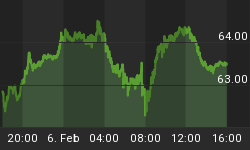To come to grips with our current economic problems we should first consider risk and whether real risk is being exposed and discussed in an open and transparent fashion. If it is, we can begin a public dialogue on solutions. If it is not, we need to ask the question why not?

When risk is masked, cloaked, hidden or mis-stated then you are going to formulate poor public policy. By masking risk we will consequentially become delusional about the the associated cost, consequence and elevating level of that risk.
Risk and cost are being hidden from us through unprecedented Monetary Malpractice, which by artificially lowering interest rates for a prolonged period, is mispricing risk, fostering malinvestment and allowing the economy to become delusional and dysfunctional through moral hazard and unintended consequences.

Financial Repression, as a central reason for hiding risk, is forcing the public to take on hidden and elevated risk in pursuit of ever shrinking yields.
Unfortunately the public is acting out what Charles Hugh Smith refers to as the "Spoiled Teenager Syndrome" within what he describes as the "Parasitic Financial Sector". A sector that now commands over 30% of corporate profits, 44% of the equity markets and 5.2% of GDP. A sector where the neo-liberal supporters of the central state, knowingly or unwittingly, both enable and enforce its predatory practices.
This sector has fostered the "Spoiled Teenager Syndrome" and is creating two fundamental problems. First it is not a productive use of capital and is bleeding productive capital from the US economy. Secondly, it is capturing the best and brightest in the workforce. As a leading Chinese government economist recently observed:
"In America the best and brightest are not creating products that people around the world want, but rather are engaged in trying to pick the pocket of others"
Psychology of Delusion
As humans we prefer illusion to the risk of adaptation. Much has been written about cognitive biases and errors, for example Confirmation Bias (seeking out data that supports our positions). Other well-known cognitive biases include:
- Positive expectation bias
- Neglecting probability
- Post-purchase rationalization
- Observational selection bias
- Bandwagon bias
- Projection bias (everyone is like us)
- Anchoring effect (is it really 20% off, or is "20% off" the retail price?)
These fail to describe the tremendous appeal of delusion. Remaining in a delusional state feels safer than risking the disruptive consequences of adaptation, innovation and change. So we cling to delusion as the "safer bet." But decisions based on illusion necessarily yield catastrophic consequences.
Politicians understand that people react negatively to unwelcome realities, and so they sustain a state of delusion with short-term politically expedient "kick the can down the road" policies and continual reassurances that the increasingly unstable system is permanently stable.
Our Delusional and Dysfunctional State
- False Entitlement Program Promises,
- False Expectations of the sustainability of the current standard of living.
- False Employment and Career Expectations,
- False Expectations of the value of deficit spending and money expansion,
- False Beliefs in the levels of equality and opportunity,
- False Beliefs in the motivations and success of government public policy initiatives
29 Minutes, 25 Slides















